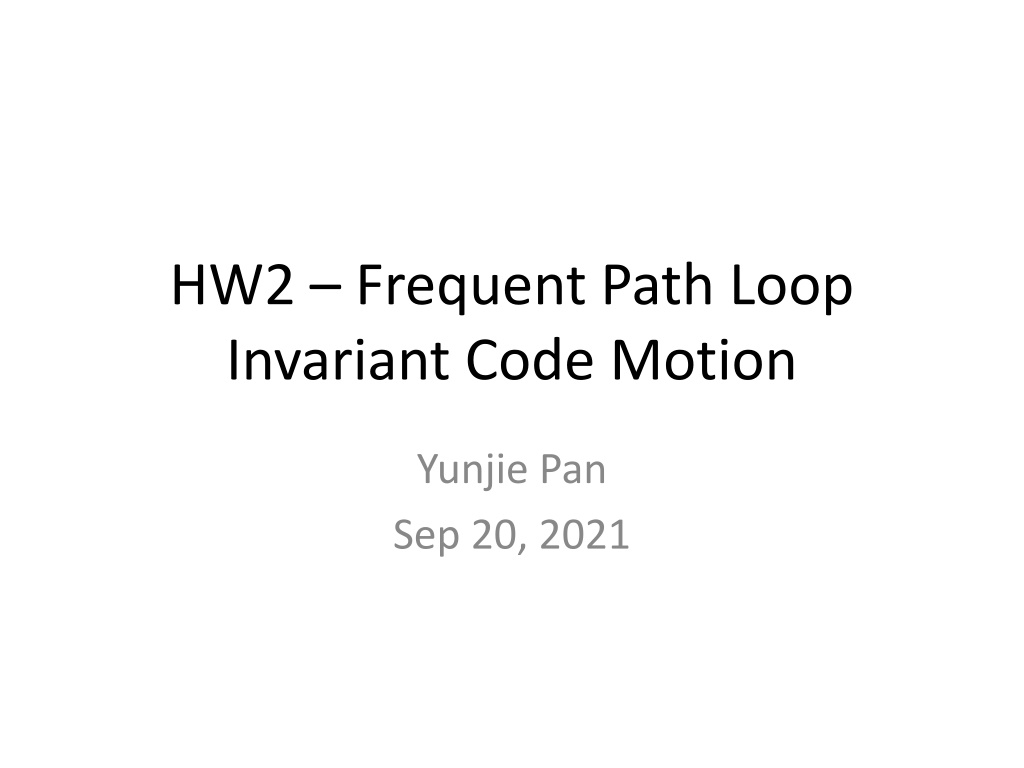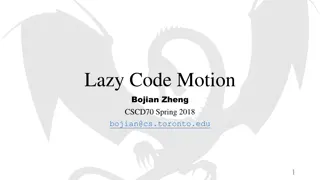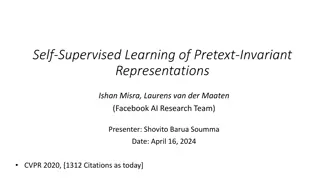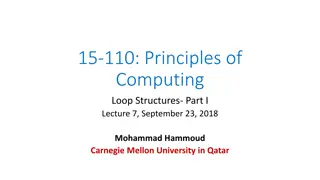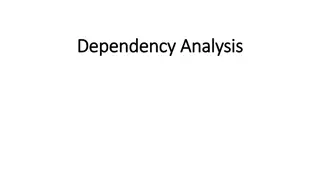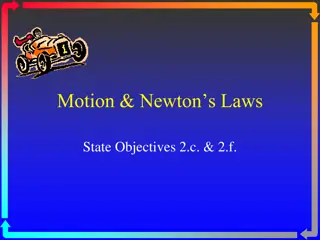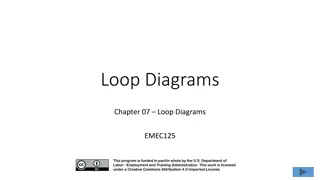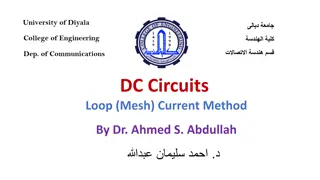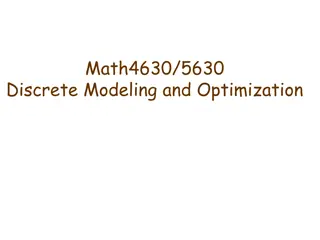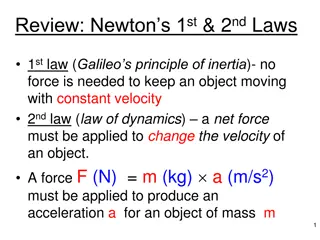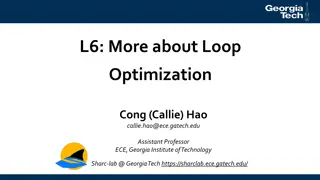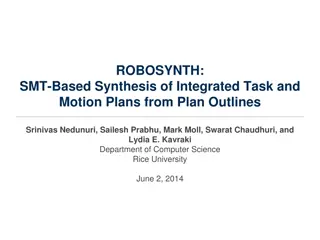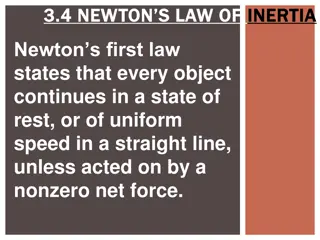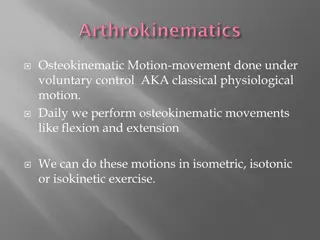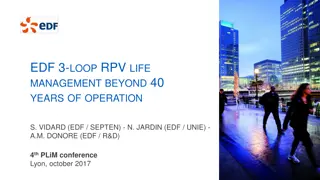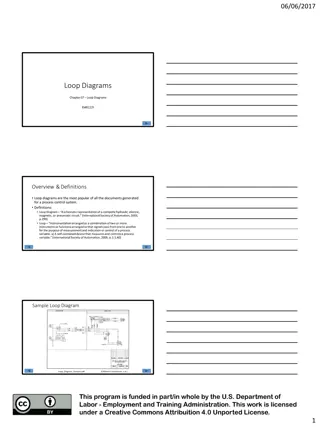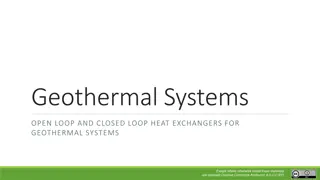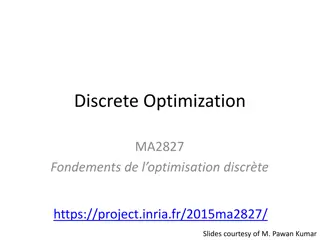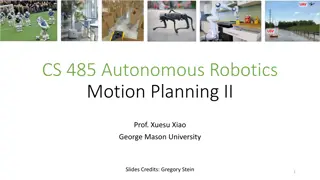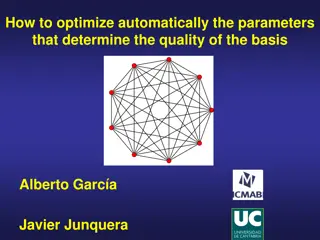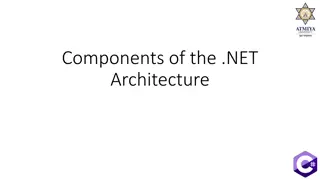Loop Invariant Code Motion in Frequent Paths for Optimization
Loop Invariant Code Motion (LICM) is a key optimization technique that identifies and moves code operations whose operands remain constant within a loop to improve performance. The process involves careful consideration of memory operations and operations not executed every iteration. The assignment covers scenarios where LICM cannot be performed due to dependencies between loads and stores, and suggests strategies to handle infrequent dependencies in order to optimize code execution.
Download Presentation

Please find below an Image/Link to download the presentation.
The content on the website is provided AS IS for your information and personal use only. It may not be sold, licensed, or shared on other websites without obtaining consent from the author. Download presentation by click this link. If you encounter any issues during the download, it is possible that the publisher has removed the file from their server.
E N D
Presentation Transcript
HW2 Frequent Path Loop Invariant Code Motion Yunjie Pan Sep 20, 2021
Loop Invariant Code Motion (LICM) for (int i = 0; i < n; i++) { x = y + z; a[i] = 6 * i + x * x; } Their values don t change within the loop 1
Loop Invariant Code Motion (LICM) for (int i = 0; i < n; i++) { x = y + z; a[i] = 6 * i + x * x; } Move operations whose source operands do not change within the loop to the loop preheader Execute them only 1x per invocation of the loop Be careful with memory operations! Be careful with ops not executed every iteration x = y + z; t1 = x * x; for (int i = 0; i < n; i++) { a[i] = 6 * i + t1; } LICM code exists in LLVM! /lib/Transforms/Scalar/LICM.cpp 2
Your Assignment: Frequent Path LICM BB1 r1 = &A r4 = load(r1) r7 = r4 * 3 r3 = r3 + r5 BB2 1 r2 = r2 + 1 store (r2, r1) BB3 99 1 r8 = r2 + 7 store (r3, r8) BB4 3
Your Assignment: Frequent Path LICM BB1 Cannot perform LICM on load, because of the store-load dependency r1 = &A r4 = load(r1) r7 = r4 * 3 r3 = r3 + r5 BB2 1 r2 = r2 + 1 store (r2, r1) BB3 99 1 r8 = r2 + 7 store (r3, r8) BB4 4
Your Assignment: Frequent Path LICM BB1 Cannot perform LICM on load, because of the store-load dependency r1 = &A But profile data says that the store rarely happens r4 = load(r1) r7 = r4 * 3 r3 = r3 + r5 BB2 1 r2 = r2 + 1 store (r2, r1) BB3 99 1 r8 = r2 + 7 store (r3, r8) BB4 5
Your Assignment: Frequent Path LICM BB1 Cannot perform LICM on load, because of the store-load dependency r1 = &A But profile data says that the store rarely happens r4 = load(r1) r7 = r4 * 3 r3 = r3 + r5 BB2 1 r2 = r2 + 1 store (r2, r1) BB3 99 Frequent Path LICM: 1) Ignore infrequent dependence between loads and stores 1 r8 = r2 + 7 store (r3, r8) BB4 6
Your Assignment: Frequent Path LICM BB1 Cannot perform LICM on load, because of the store-load dependency r1 = &A But profile data says that the store rarely happens r4 = load(r1) r7 = r4 * 3 r3 = r3 + r5 BB2 1 r2 = r2 + 1 store (r2, r1) BB3 99 Frequent Path LICM: 1) Ignore infrequent dependence between loads and stores 2) Perform LICM on load 1 r8 = r2 + 7 store (r3, r8) BB4 7
Your Assignment: Frequent Path LICM BB1 Cannot perform LICM on load, because of the store-load dependency r1 = &A But profile data says that the store rarely happens r4 = load(r1) r7 = r4 * 3 r3 = r3 + r5 BB2 1 r2 = r2 + 1 store (r2, r1) BB3 99 Frequent Path LICM: 1) Ignore infrequent dependence between loads and stores 2) Perform LICM on load 3) Perform LICM on any consumers of the load that become invariant 1 r8 = r2 + 7 store (r3, r8) BB4 8
Your Assignment: Frequent Path LICM BB1 Cannot perform LICM on load, because of the store-load dependency r1 = &A But profile data says that the store rarely happens r4 = load(r1) r7 = r4 * 3 r3 = r3 + r5 BB2 1 r2 = r2 + 1 store (r2, r1) r4 = load(r1) r7 = r4 * 3 BB3 99 Frequent Path LICM: 1) Ignore infrequent dependence between loads and stores 2) Perform LICM on load 3) Perform LICM on any consumers of the load that become invariant 4) Insert fix-up code to restore correct execution 1 r8 = r2 + 7 store (r3, r8) BB4 9
Your Assignment: Frequent Path LICM r1 = &A r4 = load(r1) r7 = r4 * 3 r1 = &A r4 = load(r1) r7 = r4 * 3 r3 = r3 + r5 r3 = r3 + r5 1 1 r2 = r2 + 1 store (r2, r1) r4 = load(r1) r7 = r4 * 3 r2 = r2 + 1 store (r2, r1) 99 99 1 1 r8 = r2 + 7 store (r3, r8) r8 = r2 + 7 store (r3, r8) Before FPLICM After FPLICM 10
HW2: Frequent Path (FP) LICM Correctness: Identify the Frequent Path (edge probability >= 80%) Find store instructions among all infrequent BBs and their dependent load instructions in frequent BBs destination operand of infrequent store = source operand of frequent load Hoist the FP invariants: Load instruction Replicate all hoisted instructions in the infrequent path Performance: Create a heuristic that determines to perform FP LICM or not. Smart heuristic should apply optimization when it s profitable. Hoist the profitable FP invariants. Load instruction Consumers of the load that become invariant* (For bonus points) 11
FPLICM: What constitutes to FP Correctness: this can be accomplished by starting at the loop header and repeatedly following the >=80% branch until a >=80% loop backedge is taken. *Note: This means that the cumulative probability of a BB might be lower than 80% Anything not on the frequent path is on the infrequent path. Performance: tune the parameter to achieve the highest performance gains 12
HW2: Useful Resources run.sh List of commands used in HW2 Check correctness of your pass! Project Template HW2PASS.cpp runOnLoop( ) Visualization Script will be on piazza later Benchmarks 6 correctness tests + README (Required) Only need to hoist the dependent load instructions Must generate the correct output after applying your FPLICM pass Only submit the file created after your pass could run. hw2correct1.fplicm.bc => hw2correct1_base.bc. You do NOT have to test your pass on the performance benchmarks 4 performance tests + README (Optional) Hoist as many instructions as possible Correctness first, then the performance Same thing. except rename to hw2perf1_bonus.bc inSubLoop( ) 13
LLVM Code of Interest The following slides present code from the LLVM codebase that may help you with HW2. Disclaimers: Use of following API is your choice. There are many ways to do this assignment. You are free to use any other code that exists in LLVM 12.0.1 or that you develop. Read the documentation/source before asking for help! http://llvm.org/docs/ProgrammersManual.html#helpful- hints-for-common-operations 14
Code: Manipulating Basic Blocks SplitBlock( ) splits a BB at a specified instr, returns ptr to new BB that starts with the instr, connects the BBs with an unconditional branch // I is an Instruction* BasicBlock *BB1 = I->getParent(); BasicBlock *BB3 = SplitBlock(BB1, I); BasicBlock *BB2 = SplitEdge(BB1, BB3); SplitEdge( ) will insert a BB between two specified BBs Code found in: <llvm-src- root>/include/llvm/Transforms/U tils/BasicBlockUtils.h <llvm-src- root>/lib/Transforms/Utils/Basi cBlockUtils.cpp 15
Code: Creating and Inserting Instructions Various ways to create & insert instructions // 1) create load, insert at end of // specified basic block LoadInst *LD = new LoadInst(Val, loadflag , BB1); Hint: Instructions have a clone() member function // 2) create branch using Create // method, insert before BB1 s // terminating instruction Branch::Create(BB1, BB2, flag, BB1->getTerminator()); See specific instruction constructors/member functions in: <llvm-src- root>/include/llvm/IR/Instruction s.h // 3) create a store inst that stores // result of LD to some variable // (related to next slide) StoreInst *ST = new StoreInst(LD, var); // inserting store into code ST->insertAfter(LD); See general instruction functions available to all instructions in: <llvm-src- root>/include/llvm/IR/Instruction .h 16
Code: Creating Variables // 1) Create a variable in the // function Entry block AllocaInst *Val = new AllocaInst( I->getType(), 0, nullptr, Entry->getTerminator() ); Use AllocaInst to allocate memory space on the stack. // 2) store to the variable StoreInst *ST = new StoreInst( Result, Val, Entry->getTerminator() ); 17
Important: Maintaining SSA Form Static Single Assignment form requires unique destination registers for each instruction Replicated instructions in your infrequent BB will write to different regs compared to the instructions in the preheader! Store results of hoisted instrs to stack variables (see prev. slide) Make sure AllocaInst sare in function s entry BB! 18
General Notes Regarding HW2 Start early! Will be released on 9/20 (Mon) Make sure your optimization doesn t break a program! Start with script/template. Try the bonus part Check the piazza Running/Debugging Performance Competition: Generate correct AND fast bitcode 19
